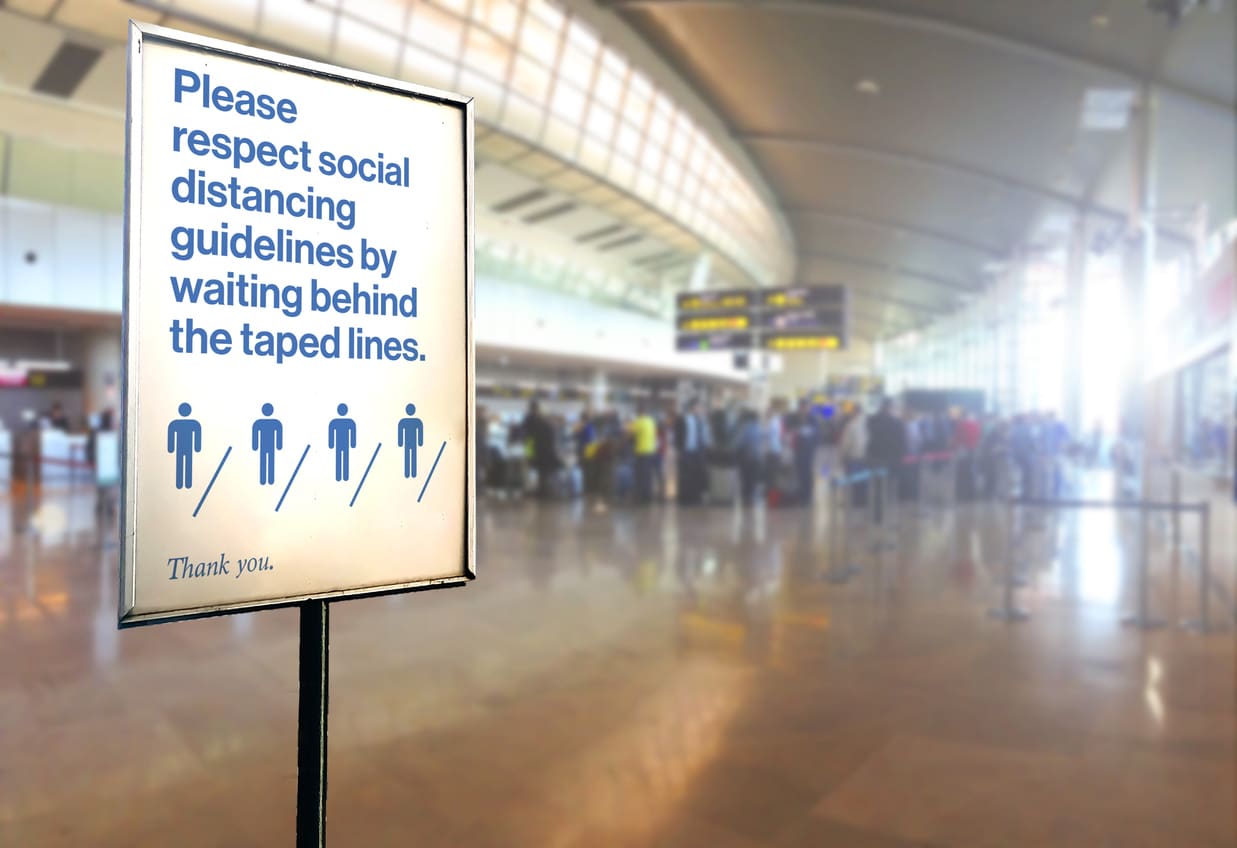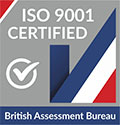Air travel in the United States is extremely limited due to COVID-19. However, some people may still have to fly while the country deals with upticks in confirmed cases.
If you have to travel by air during the COVID-19 pandemic, there are many temporary – and possibly permanent, Transportation Security Administration (TSA) procedure changes you can expect.
Changes to TSA Procedure at Checkpoints
Since COVID-19 is a fluid situation, you can expect the TSA to continue to tweak and refine its policies as the COVID-19 situation evolves.
- Number of Passengers: The TSA has consolidated screening operations around reduced numbers of flights and passengers, some checkpoints may close, and travelers will have to be aware of detours to other checkpoints.Â
- Social Distancing: The six-foot rule is in effect, and travelers can expect to see visual reminders. Some lanes may not be in operation to allow for increased distancing between individuals.
- Less Contact: The TSA is gradually introducing clear plastic barriers to minimize contact; travelers will hold on to their IDs and boarding passes and present them for scanning or visual inspection.
- PPE: TSA will wear PPE on the face and hands. TSA personnel will change gloves after patdowns and when requested by passengers.
- Cleanliness: The TSA has increased the amount of cleaning and disinfection of ALL surfaces that are frequently touched; when testing travelers’ palms for explosives, TSA personnel will use a new swab for each individual.
- Hand Sanitizer Exemption: The TSA is temporarily making an exception to the standard allowance of liquid it permits and is authorizing one container of up to 12 ounces of liquid hand sanitizer per passenger.Â
- TSA will screen hand sanitizer separately; travelers will need additional time to get through screening.
- Expired IDs:Â Did your driver’s license or state-issued ID expire on or after March 1, 2020, and are you unable to renew at your state driver’s agency?
- You may still use it as an ID at the checkpoint.Â
- TSA will accept expired driver’s licenses and state-issued ID a year after expiration.
New TSA RecommendationsÂ
The TSA still recommends that travelers allow additional time to get through screening because of the new COVID-19 procedures. The TSA also has new recommendations:
- Wash your hands regularly – directly before and after completing the security screening process.
- Use social distancing of six feet wherever possible, even when not in line at a checkpoint.
- Remove belts and personal items from your pockets before entering the checkpoint line and place them in your carry-on.
- Wear a face mask during the screening process.Â
- You may have to adjust your mask for ID verification or to remove it for secondary screening.
- Remove food from carry-ons and place it in the screening bin.Â
Reducing COVID-19’s Impact on Traveling Employees
Some businesses still require employees to travel during this confusing time, but there are ways to make travel safer.Â
With the help of Remote Medical International, companies can develop:
- Procedures for screening traveling employees before they enter a job site
- Telemedicine assistance for traveling employees who need COVID-19 questions answered
- Medical evacuation (COVID-19 or otherwise) for global locations
Remote Medical International’s COVID-19 Services can protect employees’ health and well-being on diverse job sites from remote pipeline installations to offshore wind and maritime operations.
Contact us to build a COVID-19 program that takes the best medical practice into account while also staying within your budget.


